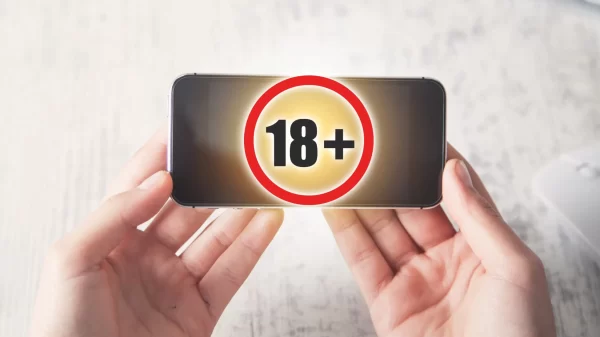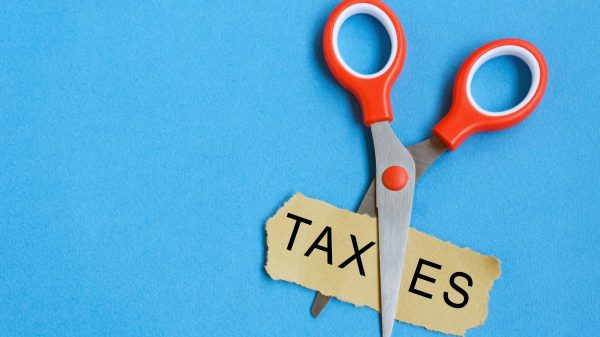Alabama is set to become the second state to preemptively prohibit the use of a central bank digital currency (CBDC) after the Alabama legislature passed Senate bill 330 on the final day of the legislative session.
If enacted into law, state agencies and subdivisions would be prohibited from accepting a CBDC as payment as well as participating in tests of a CBDC. Bill sponsor Sen. Dan Roberts, R-Mountain Brook, introduced it in reaction to the Biden administration’s March 2022 executive order to explore the potential for a digital dollar while encouraging the Federal Reserve’s evaluation.
“I think the aim, at one day, is to replace any paper money that we have, walking around, with digital currency on some electronic device. All I’m trying to do is say is ‘let’s tap the brakes here,’” Roberts said. “It gives us the opportunity to determine who’s going to hold these digital coins or currency as they come in; where they are housed; will it require appropriations for us to store currency in a different method than we have previously?”
A central bank digital currency could refer to any digital liability or money issued by a central bank and backed by a government — 11 countries have launched CBDCs, including Nigeria and the Bahamas. The idea is still hypothetical in the United States: no policy decisions have resolved to adopt a CBDC, but the Federal Reserve has conducted research into the pros and cons of a digital dollar. The Fed board released a policy paper in January 2022 and heard a 120-day public comment period.
“Like existing forms of commercial bank money and nonbank money, a CBDC would enable the general public to make digital payments. As a liability of the Federal Reserve, however, a CBDC would not require mechanisms like deposit insurance to maintain public confidence, nor would a CBDC depend on backing by an underlying asset pool to maintain its value. A CBDC would be the safest digital asset available to the general public, with no associated credit or liquidity risk,” the paper reads.
While the Fed maintains neutrality awaiting any CBDC policy, their research argues a digital dollar would be beneficial to the U.S. on the conditions that it is privacy-protected, intermediated by the private sector, widely transferable, and identity-verified. Such a CBDC would be an electronic equivalent of a federal reserve note, not a private cryptocurrency like Bitcoin or Ethereum distributed through digital ledger technology.
“There are major concerns that this bill addresses related to the issuance of digital currency as issued by the central bank and concerns given the recent testing and discussions by the Federal Reserve with this digital currency. There were stress tests done in October and November on large portions of our banking system, and these are linked to the fact that this would undermine the viability of private banks and other financial clearing houses,” Roberts said.
Alabama is the fourth state to pass legislation against a potential CBDC and the second to pass a bill. Florida was the first and the most comprehensive: their law prohibited use of any CBDC across the Florida Commercial Code, affecting consumers and retail, whereas the Alabama bill only prohibits governmental agencies.
“The Biden administration’s efforts to inject a Centralized Bank Digital Currency is about surveillance and control,” Florida governor Ron DeSantis said. “Today’s announcement will protect Florida consumers and businesses from the reckless adoption of a ‘centralized digital dollar’ which will stifle innovation and promote government-sanctioned surveillance. Florida will not side with economic central planners; we will not adopt policies that threaten personal economic freedom and security.”
Three other state legislatures — Louisiana, North Dakota, and Texas — passed joint resolutions opposing a CBDC, but they did not pass any acts taking similar measures as Alabama or Florida.
Roberts and Rep. Jamie Kiel, R-Russellville, who carried the bill to the House, suggested the legislature could reexamine the issue next year, but a CBDC should be avoided until Alabama is confident in its feasibility.
“It’s arguable whether the central bank is reliable or not, but the new currency coming from it has not been proven yet. And we just don’t want our state to get caught up in a situation where somehow it fails or it’s not secure and releases personal information that we’re not sure needs to be released,” Kiel said. “We want to make sure we get through all that testing process, and we’re not the Guinea pig when it comes to the currency.”
Opponents of a CBDC cite privacy and monetary concerns. Currently, the Fed issues paper notes — traditional cash bills — available to the public, but monetary policy is implemented through the commercial accounts banks and financial institutions hold with the Fed.
“A retail CBDC would give the Federal Reserve even more control over the money and banking than they currently have. Presently, all of their monetary policy actions work through the big financial institutions, but a retail CBDC, depending on how it is implemented, could give the Fed direct access to everyone’s ability to hold and spend money,” Jonathan Newman, an economist and fellow at the Ludwig von Mises Institute in Auburn, said. “If physical cash is totally displaced, then all privacy is gone, which would have major implications for taxes and personal freedom in general. This is all not to mention the likelihood of despotic politicians and bureaucrats using it as a weapon against dissidents.”
SB330 implicitly distinguishes a retail CBDC, used by everyday consumers and businesses, from a wholesale CBDC, used between financial institutions for clearing. Its definition of a CBDC specifies one would be “made directly available to a consumer.”
Because the legislature passed SB330 on June 6, the same day they adjourned sine die, the governor must approve the bill within ten days, June 16, or it receives a pocket veto.



















































